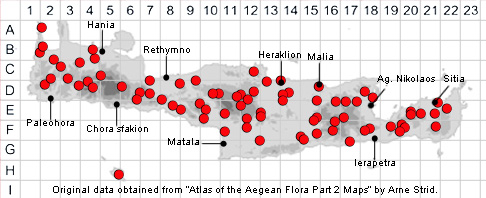SPECIES DESCRIPTION
PLANTAGO LANCEOLATA
Family and Genus:- See- PLANTAGINACEAE/Subgen. PLANTAGO
Common Names:- Ribwort plantain
Homotypic Synonyms:- Plantago lanceolata ssp. lanuginosa, Plantago
lanceolata ssp. sphaerostachya.
Meaning:- Plantago (L) Foot-sole-like, (reference to the way the leaves lie flat on
the ground).
Lanceolata (L) Narrowed and tapered at both ends, lance-shaped.
General description:- Perennial with several rosettes; roots up to 0·75 mm thick.
Leaves:-
1) In rosettes, 2-30 x 0·5-3·5 cm, usually linear-lanceolate to lanceolate, entire or
remotely and shallowly dentate, 3- to 5-(to 7-) veined, subglabrous, appressed-
pubescent or villous, sessile or with a petiole up to as long as the lamina.
Flowers:-
1) Scapes, about twice as long as the leaves, 5-sulcate, more or less appressed-
hairy.
2) Spikes, 0·5-5(-8) cm, very dense.
3) Bracts, 2·5-3·5 mm, ovate, glabrous or shortly hairy.
4) Sepals, 2·5-3 mm;
a) anterior, connate for most of their length, but their midribs separate, often
shortly hairy, ciliate above.
5) Corolla-tube, brown, 2-3 mm, glabrous;
a) lobes, 1·5-2·5 mm, lanceolate to ovate, acute or acuminate, glabrous.
6) Stamens, exserted, 3-5 mm;
a) anthers yellowish.
Fruit:-
1) Capsule, 3-4 mm.
2) Seeds, 2, c. 2 mm, cymbiform.
Key features:-
1) Bracts and sepals, glabrous or very shortly hairy.
2) Scapes, usually strongly 5-sulcate.
3) Rosettes, usually several.
Habitat:- In a wide variety of seasonally damp, somewhat ruderalised habitats. 0-
800 (-1900) m.
Distribution:- Widespread throughout the Mediterranean region. Widespread and
common on Crete.
Flowering time:- Apr-July, occasionally at other times.
Photos by:- Steve Lenton
